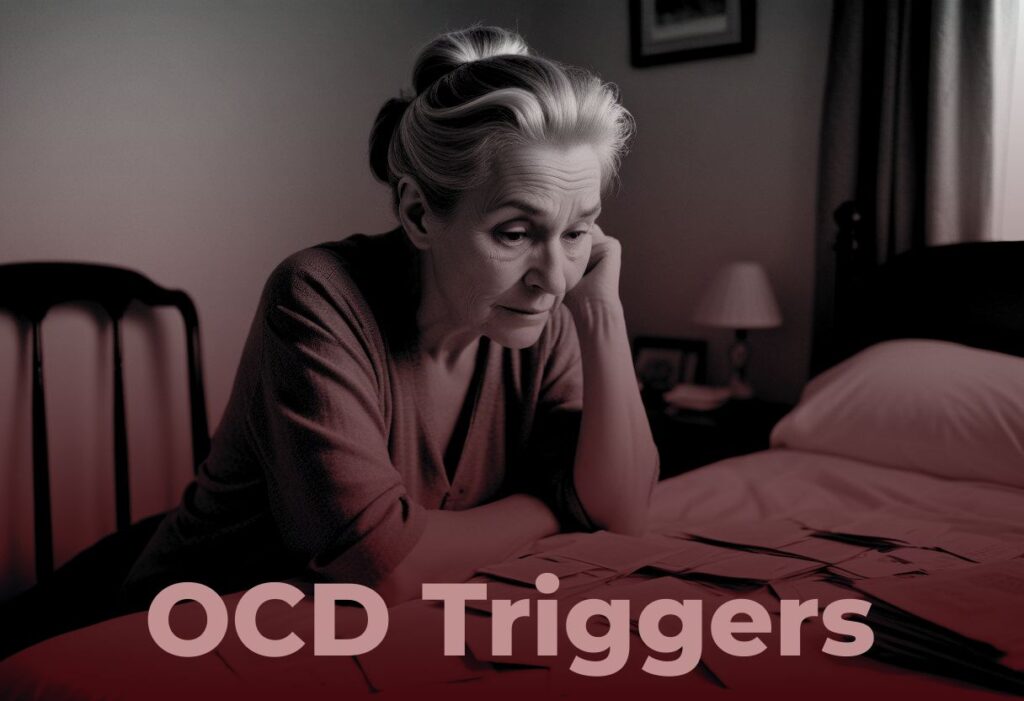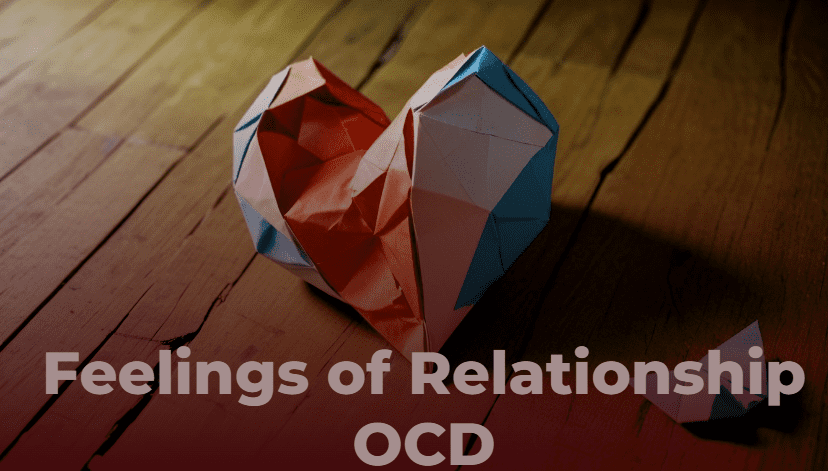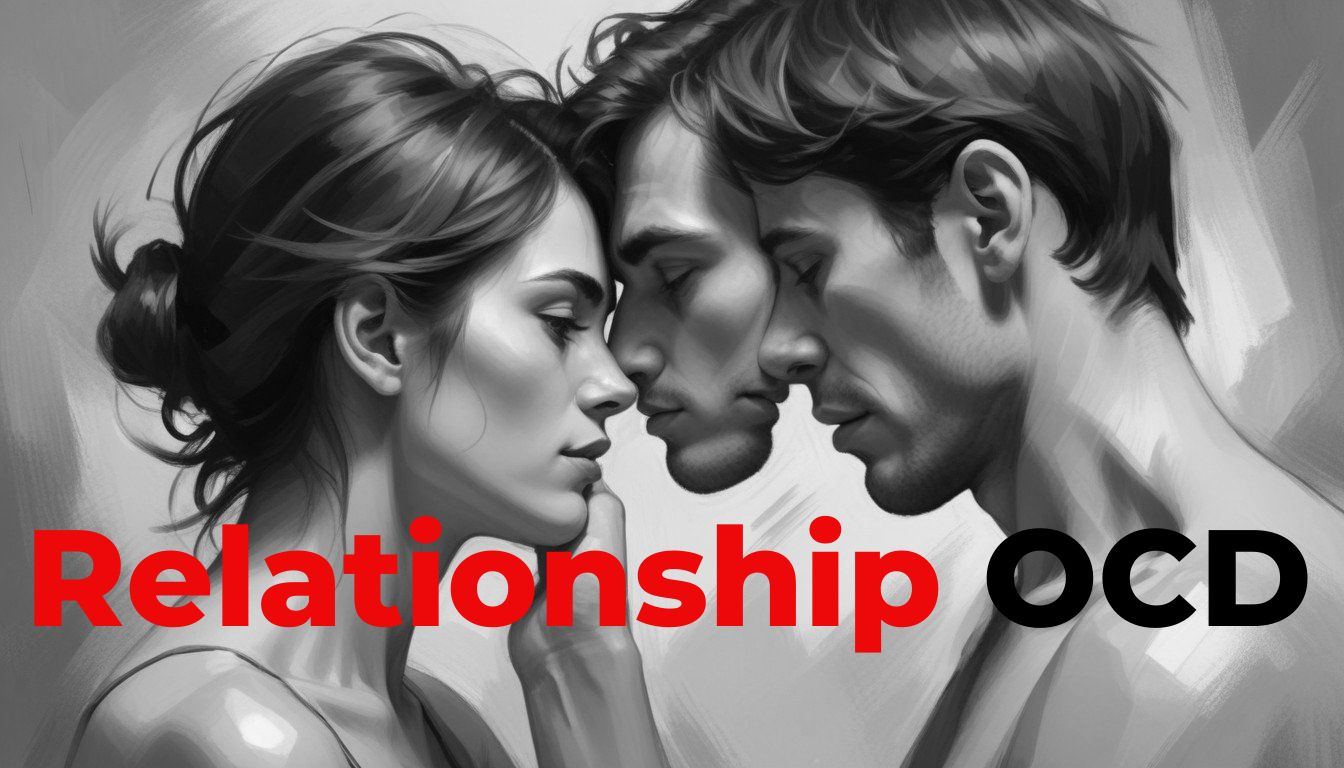Relationship OCD (R-OCD) is a type of mental health disorder that impacts relationships on a big scale. However, following some tips can help manage R-OCD.
To live a healthy and happy life, it is necessary to have a healthy relationship. Our body works the way we act, and our brain develops similarly. Building solid and loving bonds with friends, family, and romantic partners can enhance your immune system, decrease stress, and provide a sense of belonging.
Romantic partnerships are often meaningful connections in an individual’s life. They are characterized by emotional and physical intimacy built by a deep connection between two individuals. These relationships are built upon commitments such as living together, marriage, and starting a family.
Doubts and insecurities are natural during the duration of love and relationships. However, for some, these doubts can turn into an obsessive pattern that disrupts their lives and eventually result in relationship OCD.
What is Relationship OCD?
Relationship OCD (R-OCD) is a type of mental health disorder where people experience intrusive, distressing thoughts and doubts about their romantic relationships.
In such a situation, the person knows that they love their partner but is not sure about their choice. They continuously doubt and have a lot of questions about the choice.
Signs of R-OCD

Obsessions
Obsessions are persistent and distressing thoughts, images, or urges that bug into a person’s mind without being welcomed. Obsession generally impacts daily life, making it hard to focus on everyday activities.
Here are some critical points of people having Relationship OCD:
- Doubts About Partner’s Suitability: Persistent thoughts about whether the partner is the “right” one, often focusing on perceived flaws or comparing them unfavorably to others.
- Doubts About Own Feelings: Intrusive thoughts questioning if the individual truly loves their partner or if they are genuinely attracted to them.
- Fidelity Concerns: Obsessive thoughts about their partner’s fidelity, even without any concrete reason to suspect infidelity.
- Fear of Relationship Failure: Constant worry that the relationship will end or they will inevitably leave their partner.
Compulsions
Compulsion is another massive sign of Relationship OCD.
- Reassurance Seeking: Constantly asking their partner or others for reassurance about the relationship or their feelings.
- Comparing: They frequently compare their relationship or partner with others to gauge if theirs measures up.
- Checking Behaviors: Repeatedly checking texts, emails, or social media for signs of infidelity or issues in the relationship.
- Mental Rituals: Engaging in mental review or analysis of the relationship, trying to find evidence that either supports or refutes their fears.
Causes of R-OCD

The exact cause of R-OCD is still being researched. However, some factors are known to contribute to its development:
- Genetic Predisposition: A family history of OCD or other anxiety disorders can increase the risk of developing R-OCD.
- Brain Chemistry: Imbalances in neurotransmitters like serotonin are thought to play a role in OCD and its subtypes.
- Personality Traits: Individuals with perfectionistic, anxious, or highly analytical personality traits may be more likely to suffer from R-OCD.
- Past Experiences: Traumatic or unstable past relationships can contribute to the fear of relationship failure and trust issues.
Triggers of R-OCD

Relationship OCD can be triggered by various factors, including:
- Stressful Life Events: Major life changes or stressors, such as moving in together, getting married, or experiencing significant conflict in the relationship.
- Relationship Transitions: Milestones or changes in the relationship status, like starting a new relationship, engagement, or pregnancy.
- Past Relationship Trauma: Negative experiences from past relationships, such as cheating or emotional abuse.
- Personality Traits: Perfectionistic, anxious, or highly analytical personalities may be more prone to developing R-OCD.
- Attachment Styles: Insecure attachment styles, particularly anxious attachment, can contribute to obsessive worries about the stability and future of the relationship.
- Mental Health Issues: Co-occurring mental health conditions like generalized anxiety disorder, depression, or other forms of OCD can exacerbate Relationship OCD symptoms.
- Fear of Rejection or Abandonment: Deep-seated fears of being rejected or abandoned by a partner can trigger obsessive thoughts about the relationship’s viability.
Managing Triggers
Understanding what triggers R-OCD is the first step in managing it. Here are some strategies:
- Identify Triggers: Keep a journal to track situations, thoughts, or feelings that trigger obsessive doubts.
- Therapy: Engage in Cognitive Behavioral Therapy (CBT) or Exposure and Response Prevention (ERP) to address and manage triggers effectively.
- Mindfulness: Practice mindfulness techniques to stay present and reduce the impact of intrusive thoughts.
- Healthy Communication: Maintain open and honest communication about your feelings and concerns with your partner.
- Limit Comparisons: Avoid comparing your relationship to others, especially on social media.
- Self-Care: Prioritize self-care and stress management techniques to reduce overall anxiety levels.
Types of R-OCD
There are two common types of R-OCD, although some individuals may experience both:
- Relationship-focused: Symptoms revolve around the relationship itself, questioning whether the partner truly loves them or whether they genuinely love their partner.
- Partner-focused: Symptoms revolve around the traits of the partner, constantly doubting their partner’s personality, intelligence, and other qualities.
What Does R-OCD Feel Like?

R-OCD can feel like an overwhelming, constant stream of doubts and worries about your romantic relationship. Imagine you have a little voice in your head that keeps asking, “Is this the right person for me?” or “Do I really love them?” These thoughts pop up even when everything is fine.
Sometimes, feelings of insecurity and doubt lead to frustration and confusion when loved ones do not understand the cause of anxiety. This obsession can feel all-consuming, impacting sexual intimacy and making it very complicated to engage in sexual activities with your partner.
Also read: Clinical trial suggests avoiding meat may help liver disease patients
Impact of R-OCD on Relationships
Relationship OCD can significantly impact both the sufferer and their partner:
- The strain on the Relationship: Constant doubts and the need for reassurance can lead to conflicts and emotional distance.
- Reduced Relationship Satisfaction: Obsessive thoughts and compulsive behavior can degrade the quality of enjoyment and trust, reducing overall satisfaction.
- Emotional Distress: Daily conflicts and arguments can heighten anxiety, stress, and emotional turmoil for both partners.
- Isolation: The individual with R-OCD may withdraw from social activities or avoid situations that trigger their obsessions, leading to isolation.
Managing R-OCD

Professional Treatment
- Cognitive Behavioral Therapy (CBT): This is the most effective treatment for OCD. It helps individuals identify and challenge their obsessive thoughts and develop healthier thought patterns.
- Exposure and Response Prevention (ERP): A component of CBT, ERP involves gradually exposing individuals to their fears without engaging in compulsive behaviors, reducing the anxiety associated with the obsessions.
- Medication: Selective Serotonin Reuptake Inhibitors (SSRIs) are commonly prescribed to help manage Relationship OCD symptoms by balancing brain chemistry.
- Couples Therapy: Involving the partner in therapy can help improve communication, understanding, and support within the relationship.
Self-Help Strategies
- Mindfulness and Meditation: Practicing mindfulness can help individuals become more aware of their thoughts and reduce the impact of intrusive thoughts.
- Journaling: Writing down obsessive thoughts can help individuals gain perspective and identify patterns in their thinking.
- Limiting Reassurance Seeking: Gradually reducing the frequency of seeking reassurance can help break the cycle of dependency and anxiety.
- Healthy Communication: Open and honest communication with the partner about R-OCD and its effects can foster understanding and reduce conflicts.
- Self-Compassion: Practicing self-compassion and acknowledging that obsessive thoughts are a part of OCD, not a reflection of one’s true feelings, can reduce self-criticism and guilt.
Natural Ways to Manage R-OCD
- Mindfulness and Meditation: Practice mindfulness to stay present and reduce the effect of intrusive thoughts.
- Journaling: Write down obsessive thoughts to gain perspective and identify patterns.
- Exercise: Regular physical activity can help reduce anxiety and improve overall mental health.
- Healthy Communication: Openly discuss your feelings and problems with your partner.
- Limit Reassurance Seeking: Gradually reduce the frequency of seeking reassurance to break the cycle of doubt.
- Self-Care: Prioritize self-care activities, such as hobbies, relaxation techniques, and social connections to manage stress.
Conclusion
Relationships are one of the most beautiful parts of life and are the most important things to enjoy. However, for some people, they become a competition and a way to follow the trend, leading to severe mental health disorders.
With love and care, people can overcome mental illness and enjoy their lives as before. Relationships are not a joke, and one should be mindful not to destroy someone’s happiness if they cannot contribute positively. Following some basic strategies and treatment procedures can help manage Relationship OCD.
Also read: 8 Non-veg Alternatives That Will Make You Forget Non-Veg Food












One thought on “Living with Relationship OCD: Tips for Couples”